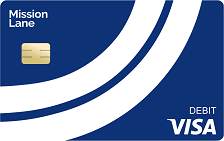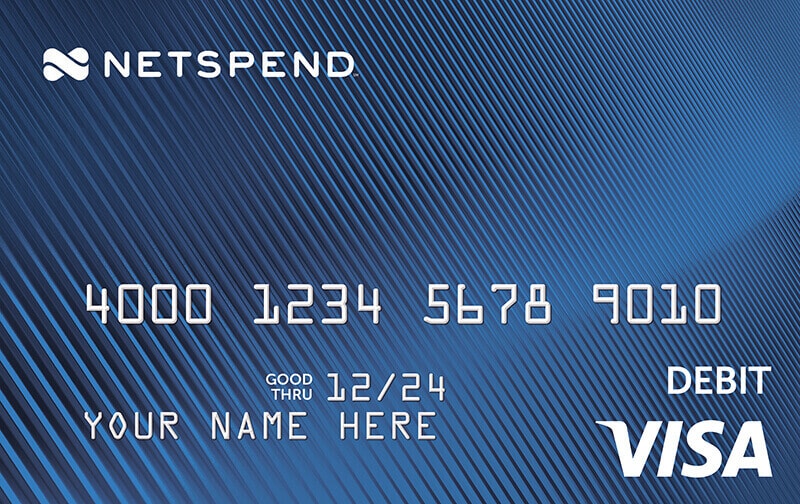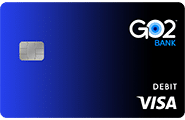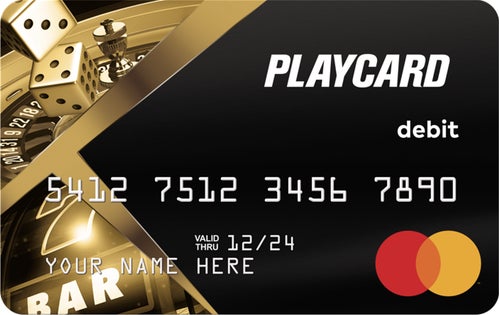
Top Prepaid Cards & Debit Card Offers
Prepaid cards can offer a convenient alternative to cash and help you budget for your monthly expenses. They’re very easy to get as they require no credit check and no bank account. If you have bad credit and have difficulty opening a bank account, a prepaid card can be a viable option.
Unlike traditional credit cards and debit cards, with a prepaid card, you’ll need to load funds before using the card for purchases. It’s a relatively low-risk way to manage your finances, especially if you struggle to stick to a budget.
Comparing prepaid & debit card offers is fast and easy:
Compare Best Credit Card Offers
Best Prepaid Cards & Debit Cards of April, 2025
Not sure which credit card is right for you?
No worries, we've got you covered! Compare multiple credit card options to choose the best card for your needs.
What is a prepaid credit card?
A prepaid credit card is a type of card where the limit is dependent on the account holder’s deposit. Unlike a traditional credit card, where purchases are made through credit and the balance will need to be repaid, an account holder can use up to the amount they have loaded onto their card.
How do prepaid credit cards work?
In many ways, a prepaid card functions like a gift card, as you’ll need to have the funds available in your account to make a purchase. There are no interest rates charged or minimum payments that need to be made.
There are several ways you can load funds into your account, including making an online transfer, adding cash via a participating retailer, using PayPal, and depositing checks at an ATM. Certain prepaid cards have withdrawal and spending limits, while others might have a fee for activating the card. There can also be a monthly fee for using the card and an inactivity fee for dormant accounts.
Your prepaid card will have an expiration date where a new card will need to be issued. Funds should be transferred from your old card to your new card, and never expire. You can order multiple cards for members of your family for the same account.
A small number of prepaid cards can offer rewards such a cashback on purchases, but this is not very common.
Pros and cons of prepaid credit cards
While prepaid cards have convenience and ease of use, helping you get back on track with your budget, there are several disadvantages that should also be considered when applying. Here are the pros and cons of using a prepaid card.
Pros:
- Low-risk: Prepaid cards are a low-risk way to manage your money. If you’re looking to give your children some spending money or need help sticking to a budget, a prepaid card can help you monitor your finances and your children’s spending habits.
- Easy approval: As there is no borrowing involved, you can obtain a prepaid card with limited or poor credit history.
- Security: Loading a prepaid card for payment can be safer than carrying lots of cash with you. The majority of cards operate on the Visa and Mastercard networks and therefore are likely to be accepted by retailers.
- Foreign exchange fees: Many prepaid cards do not charge foreign exchange fees when you use your card abroad.
- No debt: There is no way you can overspend with a prepaid card, and the majority of issuers do not provide an overdraft facility. Instead, when your balance reaches $0, the card will stop working or decline any transactions. Therefore, it’s unlikely that you will fall into debt using a prepaid card.
Cons:
- Fees: Different prepaid cards will have varying fees applied to transactions. For instance, some cards may charge a fee each time you make an ATM withdrawal. There may also be a monthly service fee or an inactivity fee applied.
- Cannot help you build credit history: Typically, you cannot build credit history with a prepaid card, as you are not borrowing money and therefore have no repayments to make.
- Lack of services: It’s unlikely that you’ll have access to the same facilities as you would with a bank, such as in-branch customer support, online and mobile banking.
- Cannot pay later: Unlike a credit card, you cannot decide to pay for your purchases later. You need to pay upfront by adding money to your card.
Do prepaid credit cards help build credit?
Prepaid cards were originally developed to help people with insufficient or poor credit history, to avoid debt or overspending. However, a prepaid card will not help you build your credit score. A prepaid card functions more like a debit card or a gift card, where you upload money and use it to make purchases. You do not take on any debt and therefore cannot build your credit history by making on-time payments. Your account will not be reported to credit bureaus or used to assess your credit score.
What are the best-prepaid credit cards?
When shopping around for a prepaid card, it’s important to compare the fees imposed and whether there are any rewards or perks. Here are some prepaid cards for you to consider:
- NetSpend Visa Prepaid Card: Easy to use, there are no fees associated with this card. You can manage your account on the go using the mobile app and receive email and text alerts.
- GO2bank: Assuming you make an eligible direct deposit, there are no monthly fees applicable, otherwise it’s $5 a month. They also have a high yield savings account where you can earn up to 1% on savings up to $5000.
- Aspiration Spend & Save: You’ll receive fee-free ATM withdrawals at over 55,000 Allpoint ATMs. You can also receive cashback on purchases with socially conscious businesses.
- PayPal Prepaid Mastercard: You can move money from your PayPal account to fund your prepaid card and earn cashback on personalized offers.
- Control Prepaid Mastercard: Easy to use, you can use this card everywhere that accepts Mastercard.
- Netspend Prepaid Mastercard: You can manage your account using the Netspend mobile app and sign up to receive text and email alerts. You’ll need to activate your card and verify your ID when applying.
What are common fees associated with a prepaid card?
Fees can vary substantially between prepaid cards, therefore it’s always best to read the fine print before you choose to apply for a card. Common fees that can be charged include:
- Activation fee: This is a one-time fee generally charged once you have been approved for the card. Fees can range from $0 to $30.
- Maintenance fee: Some card providers can charge a monthly maintenance fee varying from $5 to $9.95 a month.
- Declined transaction fee: If you do not have sufficient funds in your account to cover a payment, some card issuers can charge a fee to decline a transaction.
- ATM fees: Depending on the card provider you may have access to free ATM withdrawals or have to pay a fee to withdraw cash.
- Inactivity fees: If you leave your card inactive for several months, some issuers may charge an inactivity fee.
- Transfer fee: There may be fees for transferring funds to another account.
- Reload fees: If you’re adding funds to the account, you may be charged a fee as high as $5 per reload.
As many prepaid cards offer very few reward incentives to offset the cost of the fees to run and manage the account, it’s a good idea to apply for prepaid cards that charge few or no fees.
How can I apply and qualify for a prepaid card?
There are many providers of prepaid cards and applications can generally be done online. You’ll need to provide some basic information such as your name, address, email, and date of birth. During the application, some card providers may charge you a fee for sending you the card. As no credit check is required, you will likely be approved.
Can a prepaid card be used as a credit card?
Prepaid cards are more like a gift card or debit card than a credit card. At no point do you borrow money from the card provider and need to pay it back. You spend your own money and you’ll need to pre-fund your account. However, unlike a debit card, you don’t need a bank account to open an account.
Are prepaid credit cards a good idea?
Prepaid cards are a great option for consumers who have limited or poor credit, or lack access to a traditional bank account. As you can’t spend more than you have, prepaid cards can help you build better money management skills and budget more effectively.
Unfortunately, some prepaid cards can come with high fees so it’s best to compare multiple providers before sending in your prepaid card application.
How do I get a prepaid credit card?
There are many ways to get a prepaid card, including online and in retailers’ stores. Be sure to look out for the fees charged by the issuer, withdrawal and deposit options, and any spending limits imposed on your card. It’s a good idea to read the fine print first to ensure you are getting the best-prepaid card for your financial needs and household budget.
Quick links

What Type of Credit Card Do You Need?
Find Best Credit Card Offers
Credit Cards By Category
0% APR Credit Cards
Airline Credit Cards
Balance Transfer Credit Cards
Business Credit Cards
Cash Back Credit Cards
Hotel Credit Cards
Low Interest Credit Cards
No Annual Fee Credit Cards
Prepaid Credit Cards
Rewards Credit Cards
Secured Credit Cards
Student Credit Cards
Travel Credit Cards
Credit Card Issuers
Capital One®
Chase®
Citi®
Credit One Bank®
Mastercard®
Visa®
ADVERTISER DISCLOSURE: PashaFunding.com operates as an independent credit card comparison/review website. We want to be transparent with our users and disclose that we may receive compensation from various card issuers when users acquire credit cards through our site. This compensation may impact the placement and display of products on our site, including their order within listing categories.
EDITORIAL DISCLOSURE: The content and reviews on PashaFunding.com are prepared by our in-house staff. We strive to provide accurate and up-to-date information, but we cannot guarantee the reliability of all credit card details. To review the specific terms and conditions for a particular credit card, please click on the "Compare Credit Cards" links, which will redirect you to the card issuer's website. It is important to carefully review all the information provided by the issuer before making any decisions.












